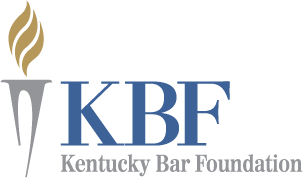Blog
- 2021
- June
- 2020
- August
- June
- March
- February
- 2019
- December
- November
- May
- 2018
- September
- 2017
- July
- February
- January
- 2016
- November
- October
- September
- August
- July
- June
- May
- April
- March
- February
- January
- 2015
- December
- November
- October
- September
- August
- July
- June
- May
- April
- March
- February
- January
- 2014
- December
- November
- October
- September
- Aaron (2)
- accident (1)
- Acena (1)
- adoption (1)
- agreement (1)
- Alimony (1)
- Announcements (4)
- Arnold (2)
- Arnold Taylor (2)
- Attorney (2)
- attorneys (3)
- Auto (1)
- auto (1)
- automobile (1)
- Beck (2)
- bias (1)
- bite (1)
- CCDW (1)
- CHFS (1)
- child abuse (1)
- civil rights (1)
- Civil Rights Act of 1964 (1)
- clean record (1)
- commission (1)
- conceal carry (1)
- conceal weapons license (1)
- conspiracy (1)
- constitution (1)
- construction defects (1)
- conviction (1)
- crime (2)
- criminal (2)
- criminal defense (1)
- David (1)
- David Sloan (1)
- defamation (1)
- department of labor (1)
- Discharged (3)
- Discrimination (5)
- diversity (1)
- divorce (3)
- dog (1)
- DOL (1)
- draw system (1)
- election (1)
- Employment (6)
- Employment Law (1)
- Equal Pay Act (1)
- Estate (1)
- estate planning (4)
- expungement (1)
- Fair Labor Standards Act (2)
- family law (4)
- federal (1)
- federal court (1)
- federal criminal charges (1)
- Federal Labor Standards Act (FLSA) (1)
- felony (1)
- FFCRA (1)
- Fired (2)
- firm (1)
- first amendment (1)
- FLSA (1)
- free speech (1)
- Gary (2)
- Gary Sergent (1)
- government (1)
- grandparent custody (1)
- guidelines (1)
- guilty (1)
- gun permit (1)
- Harassment (2)
- hostile work environment (1)
- hostility (1)
- injured on the job (1)
- injury (1)
- innocent (1)
- intra-corporate (1)
- Jessica (1)
- Jessica Wimsatt (1)
- judge (2)
- judicial (1)
- judicial conduct (1)
- jury trial (1)
- justice (1)
- juvenile (1)
- KBA YLD (1)
- Kentucky (2)
- Know Your Rights (1)
- Labor (2)
- Labor Law (1)
- law (1)
- lawyer (1)
- Lawyers (1)
- legal profession (1)
- liability (1)
- libel (1)
- living will (1)
- Maintenance (1)
- Megan (2)
- Megan Mersch (1)
- Mersch (2)
- Michael (4)
- Michael J. O'Hara (1)
- mine safety (1)
- minimum wage (1)
- motorcycle law (1)
- need attorney (2)
- off-road vehicles (1)
- OHara (3)
- Ohio (1)
- Our attorneys (3)
- Paid Family Leave (1)
- Paid Sick Leave (1)
- parole (1)
- pets (1)
- Planning (1)
- plea (1)
- power of attorney (2)
- Pregnancy Discrimination (1)
- pro se (1)
- probate (2)
- property distribution (1)
- protected class (1)
- race (1)
- recuse (1)
- Repairs (2)
- Ruberg (1)
- school law (2)
- sentencing (1)
- separation (1)
- Sergent (2)
- severance (1)
- sexting (1)
- slander (1)
- Sloan (1)
- social media (1)
- Spousal Support (1)
- state criminal charges (1)
- Sue Cassidy (1)
- super lawyers (1)
- talking to the police (1)
- Taylor (2)
- tender back (1)
- tip credit (1)
- Title VII (1)
- trusts (2)
- victim (1)
- wage and hour (3)
- website (1)
- will (3)
- wills (2)
- wills and estates (1)
- Wimsatt (1)
- workers compensation (1)
- Working off the clock (1)
- workplace discrimination (2)
- wreck (2)
- Young Lawyers (1)
Commissions and Draw Systems - What Employees Should Know
The federal Fair Labor Standards Act exempts employers from paying overtime to some retail sales or service employees who are paid primarily on commission, but only if certain requirements are met. Many of those employers use a draw system to meet those federal requirements. If those conditions are not met, the employer may be required to pay overtime or otherwise comply with minimum wage requirements.
In order for an employer to be exempt from paying overtime to its employees who are on commission, more than half of the employee’s compensation for a period of time (not less than one month) must be pay that consists of commissions on retail goods or services. In addition the regular rate of pay of the employee must be in excess of one and one-half times the applicable minimum wage. For example, if the minimum wage in your state is $7.25 an hour, the employer would have to pay commissions that average out to be $10.88 per hour during each work week. In order to meet minimum wage requirements employers may pay their commissioned employees a draw or advance in weeks where commissions fall below minimum wage.
Federal regulations permit different commission payment systems. One of the more common systems is one in which a straight commission is supplemented with “advances” or “draws” paid to the employee. Then, at periodic intervals, a settlement is made at which time the payments already received by the employee are supplemented by any additional commissions earned over and above the draws.
If the employer requires the employee to pay back that draw or advance, the employee’s rights under federal wage laws may be violated. In fact, some courts have held that such a requirement violates federal minimum wage laws. Federal regulations make clear that wages must be paid finally and unconditionally, or free and clear. This is different from many commission/draw systems where the employer pays a weekly minimum or draw to the commissioned employee. Then, at the end of a set period (often a month), the employer will pay the employee an additional amount equaling the amount that the commissions earned by the employee exceed the draw for that month. The draw is credited against the commissions, but the employee is not required to repay any draw to the employer, even if the draws do not exceed the earned commissions.
If you are a retail sales or service employee who works on commissions, have been paid draws in order to cover minimum wage requirements, and have been required to repay those amounts to your employer, your rights under the Fair Labor Standards Act may have been violated. You should consult with an experienced labor and employment lawyer who can assist you in protecting those rights.
To learn more or speak with one of our employment law attorneys about your specific situation, contact us today.
Author: Michael J. O'Hara, Esq.







